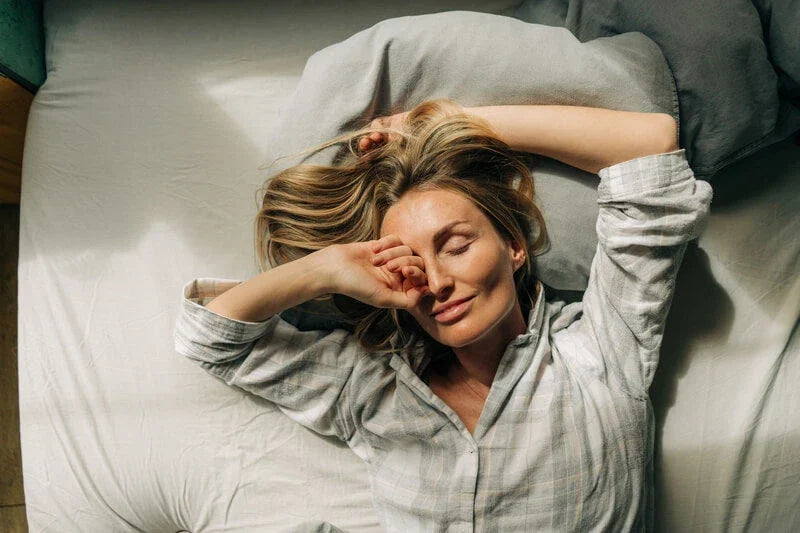Sleep hygiene during menopause: the best tips
Author: Issviva Team
Reviewed by:
11 Jun 2024
3min. read
1

Sleep hygiene refers to the habits you adopt in order to have a quality sleep, which allows you to rest properly and feel refreshed when you wake up. It includes everything from bedtime to eating a balanced diet (1).
Undoubtedly, this is a very important aspect of daily life. Poor sleep quality negatively affects concentration and mental performance. It also increases the risk of chronic diseases (2). Good sleep hygiene, on the other hand, contributes to several functions of the body. While sleeping, the body repairs damaged tissues, strengthens memory and regulates the immune system and hormone secretion (3).

During menopause, many women experience sleep disorders. This is largely due to the hormonal changes of the stage (4). The decrease in oestrogen and progesterone affect rest, as both hormones play a key role in sleep regulation. Therefore, their imbalance can result in insomnia or frequent nocturnal awakenings (5).
During menopause, symptoms capable of altering good rest also appear. For example (4):
Establishing a correct sleep hygiene during this stage reduces the risk of developing some health problems. Especially those that are more associated with menopause, such as cardiovascular diseases, type 2 diabetes and obesity (5).
Fortunately, there are some habits you can easily incorporate to improve your rest (1,6):
In addition to the strategies for improving sleep hygiene discussed above, it is helpful to manage your menopausal symptoms. You should look for ways to cope with hot flashes, episodes of anxiety, muscle and joint pain, and loss of appetite. All these circumstances affect your rest indirectly (4).
Besides the above strategies, there are other very useful tools. These are meditation and deep breathing techniques, which are effective in improving the quality of your night's rest (1).
Meditation is a practice to seek a state of calm that helps reduce stress and limit intrusive thoughts. There are different types of meditation to apply at night. You can opt for mindfulness, body scanning, or variants of yoga (9).
Another alternative is diaphragmatic deep breathing, which can be combined with meditation. It consists of breathing slowly and with amplitude, so that each inhalation and exhalation expands and expels as much air as possible (9). To perform it, try the following (9):
Incorporating meditation and deep breathing, as well as sleep hygiene strategies, can make a big difference in the quality of your rest. However, what works for one person may not work for another. If your sleep disorders persist or worsen, it is critical that you seek professional guidance.
Referencias bibliográficas
Join us on our academy of wellness and insightful medical information tailored just for you.
Discover expert tips, resources, and community support. Let's empower ourselves together.
Join the discussion
Comments
Carlos
08 Aug 2024test